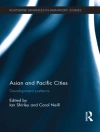Being Brains offers a critical exploration of neurocentrism, the belief that “we are our brains, ” which became widespread in the 1990s. Encouraged by advances in neuroimaging, the humanities and social sciences have taken a “neural turn, ” in the form of neuro-subspecialties in fields such as anthropology, aesthetics, education, history, law, sociology, and theology. Dubious but successful commercial enterprises such as “neuromarketing” and “neurobics” have emerged to take advantage of the heightened sensitivity to all things neuro. While neither hegemonic nor monolithic, the neurocentric view embodies a powerful ideology that is at the heart of some of today’s most important philosophical, ethical, scientific, and political debates. Being Brains, chosen as 2018 Outstanding Book in the History of the Neurosciences by the International Society for the History of the Neurosciences, examines the internal logic of such ideology, its genealogy, and its main contemporary incarnations.
Jadual kandungan
To Begin With | 1
1. Genealogy of the Cerebral Subject | 13
2. Disciplines of the Neuro | 58
3. Cerebralizing Distress | 130
4. Brains on Screen and Paper | 189
“Up for Grabs” | 227
Acknowledgments | 233
Notes | 235
Bibliography | 243
Index | 305
Mengenai Pengarang
Francisco Ortega is Professor at the Institute for Social Medicine and Research Coordinator of the Rio Center for Global Health at the State University of Rio de Janeiro, Brazil. He is also Visiting Professor at the Department of Global Health and Social Medicine at King’s College, London.












